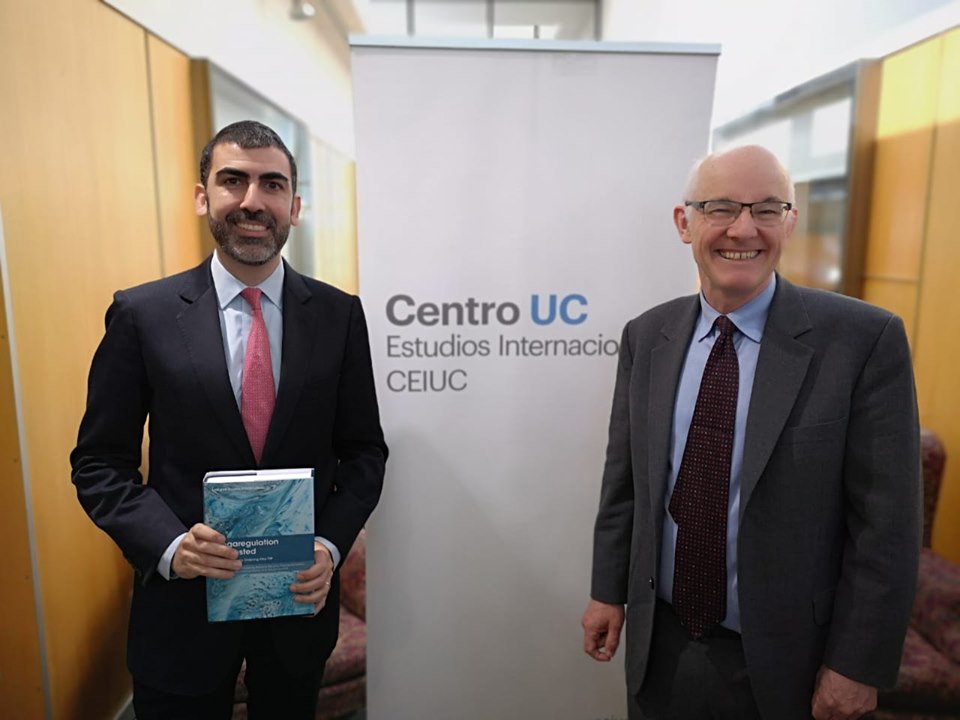On 1 July 2019, the IILJ launched Megaregulation Contested: Global Economic Ordering After TPP (OUP, 2019) at an event co-hosted by the Centro Estudios Internacionales at the Pontificia Universidad Católica de Chile. Megaregulation Contested was edited by Benedict Kingsbury, David M. Malone, Paul Mertenskötter, Richard B. Stewart, Thomas Streinz, and Atsushi Sunami.
Our faculty director, Benedict Kingsbury, situated TPP in a history of megaregional ordering projects, and presented key ideas on the Trans-Pacific Partnership and its essence, significance, and problems. Comments were offered by the Chair of the Chilean Senate Foreign Affairs Committee, which is currently holding hearings on whether Chile should ratify TPP or not, and by numerous Chilean academics, government officials, and representatives from the private sector and civil society groups. With Chile in the midst of passionate debates about whether TPP is a vital national interest or a pernicious overreach of globalization, it was a lively and spirited discussion!
ABOUT THE BOOK
The Japan-led Trans-Pacific Partnership (CPTPP) of 2018 is the most far-reaching ‘megaregional’ economic agreement in force, with several major countries beyond its eleven negotiating countries also interested. Still bearing the stamp of the original US involvement before the Trump-era reversal, TPP is the first instance of ‘megaregulation’: a demanding combination of inter-state economic ordering and national regulatory governance on a highly ambitious substantive and trans-regional scale.
Megaregulation Contested: Global Economic Ordering After TPP provides an extensive analysis of TPP as a megaregulatory project for channelling and managing new pressures of globalization, and of core critical arguments made against economic megaregulation from standpoints of development, inequality, labour rights, environmental interests, corporate capture, and elite governance.
At a time when the WTO and other global-scale institutions are struggling with economic nationalism and geopolitics, and bilateral and regional agreements are pressed by public disagreement and incompatibility with digital and capital and value chain flows, the megaregional ambition of TPP is increasingly important as a precedent requiring the close scrutiny this book presents.


